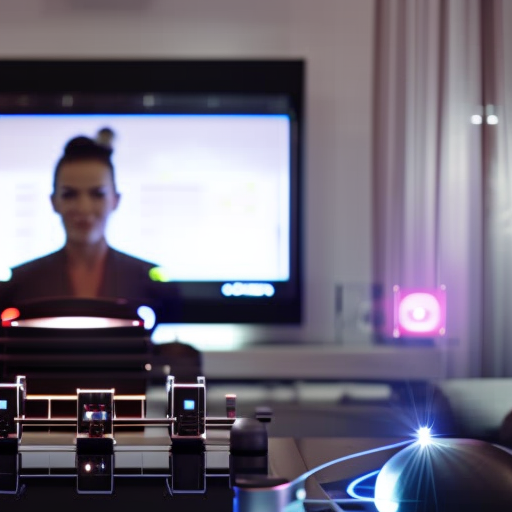Summary: Smart homes are residences equipped with devices and systems that can be controlled remotely and automated to enhance comfort, convenience, and energy efficiency. These homes utilize internet-connected devices, sensors, and artificial intelligence to provide homeowners with greater control over various aspects of their living environment. From controlling lighting and temperature to managing security systems and appliances, smart homes offer a wide range of benefits and are becoming increasingly popular.
What are smart homes?
Smart homes are residences that incorporate advanced technology to automate and control various aspects of daily life. These homes are equipped with internet-connected devices, sensors, and artificial intelligence systems that enable homeowners to remotely manage and monitor their living environment. By using smartphones, tablets, or voice commands, residents can control lighting, temperature, security systems, appliances, and more.
Benefits of smart homes
Smart homes offer numerous benefits to homeowners. One of the main advantages is increased convenience. With smart home technology, residents can automate routine tasks such as turning on/off lights, adjusting thermostats, and even starting appliances. This automation saves time and effort, allowing homeowners to focus on other activities.
Another benefit is improved energy efficiency. Smart homes can optimize energy usage by automatically adjusting lighting and temperature based on occupancy and time of day. This reduces energy waste and lowers utility bills. Additionally, smart appliances can provide real-time energy consumption data, helping homeowners make informed decisions about their energy usage.
Enhanced security is another advantage of smart homes. Homeowners can remotely monitor security cameras, lock and unlock doors, and receive alerts about potential security breaches. This provides peace of mind and allows for quick response to emergencies.
Smart home devices and systems
There are various devices and systems that make up a smart home ecosystem. Some of the most common ones include:
- Smart thermostats: These devices allow homeowners to remotely control and schedule temperature settings, optimizing energy usage.
- Smart lighting: With smart lighting systems, homeowners can control and automate their lights, adjusting brightness and color temperature according to their preferences.
- Smart security systems: These systems include security cameras, motion sensors, and door/window sensors that can be monitored and controlled remotely.
- Smart appliances: From refrigerators to washing machines, smart appliances offer features such as remote control, energy monitoring, and integration with other smart devices.
- Voice assistants: Devices like Amazon Echo and Google Home enable voice control of various smart home devices, providing a convenient and hands-free experience.
Challenges and considerations
While smart homes offer numerous benefits, there are also challenges and considerations to keep in mind. One of the main concerns is privacy and security. As smart homes collect and transmit data, there is a risk of unauthorized access or data breaches. Homeowners should ensure they have robust security measures in place, such as strong passwords and secure networks.
Compatibility and interoperability between different smart home devices and systems can also be a challenge. Not all devices may be compatible with each other, requiring homeowners to carefully select devices that work well together or invest in a smart home hub that can integrate different systems.
Another consideration is the cost of implementing smart home technology. While prices have been decreasing over time, some devices and systems can still be expensive. Homeowners should carefully evaluate their needs and budget before investing in smart home technology.
The future of smart homes
The popularity of smart homes is expected to continue growing in the future. Advancements in technology, such as the Internet of Things (IoT) and artificial intelligence, will further enhance the capabilities of smart homes. Integration with renewable energy sources, such as solar panels, will also contribute to increased energy efficiency.
In conclusion, smart homes offer a range of benefits including convenience, energy efficiency, and enhanced security. With the ability to control and automate various aspects of daily life, smart homes are becoming increasingly popular. However, homeowners should also consider privacy and security concerns, compatibility between devices, and the cost of implementation. The future of smart homes looks promising, with advancements in technology expected to further improve their capabilities.












